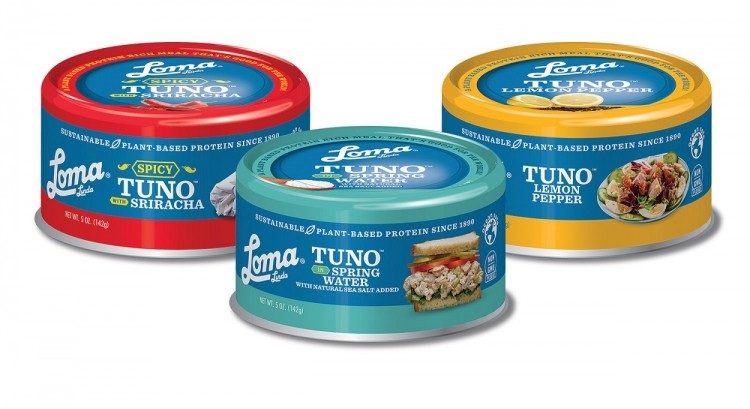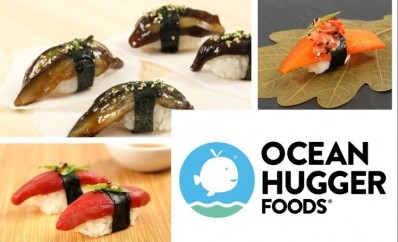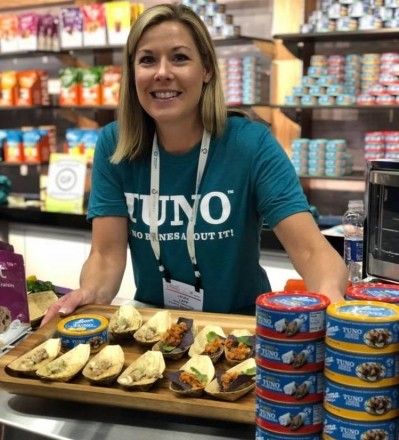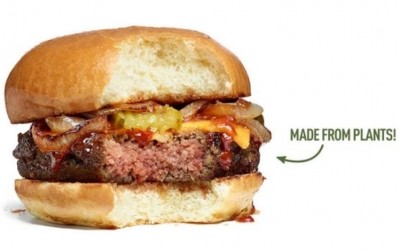Plant-based seafood brand TUNO hits shelves: ‘We recognize that seafood is not an endless resource’

ANF founder and chairman, J. Douglas Hines spent decades as an investor of the largest distant water fishing fleet operating in the western Pacific ocean – which qualified for the Marine Steward Council (MSC) certification – and experienced firsthand the strain being placed on global fish stocks.
“This made the need to create alternative protein sources that could replace everyday foods like tuna our top priority," Hines said.
Converting canned tuna consumers to a plant-based alternative represents a large market opportunity. According to the National Fisheries Institute, canned tuna is the second most popular seafood product in the US behind shrimp with Americans eating about 1 billion lbs of canned and pouched tuna per year.
"We leveraged real experience in seafood, including partners around the globe combining over 100 years' experience in harvesting and production, to develop a plant-based innovation that meets the highest standards for product excellence, but also at a family-friendly value that most shoppers can afford."
Tuna, one of the most commercially valuable fish and widely consumed in the US, is also one of the most overfished. According to the UN Food and Agriculture’s State of the World Fisheries and Aquaculture 2018 report, 43% of stocks of tuna species were fished at biologically unsustainable levels in 2015.
"We recognize that seafood is not an endless resource," Hines said. "If our planet's resources are not guarded and supplemented with alternative proteins, our future generations will not enjoy simple lifestyle requirements as basic as protein."
ANF started developing its TUNO seafood alternative five years ago and has now launched a range of three flavors: spring water with sea salt, lemon pepper, and spicy sriracha for an SRP of $1.49 - $1.99 per 5-ounce can. Loma Linda also offers a similar alternative to seafood (MSRP $1.99) in 3-ounce on-the-go, single-serve pouches, which are available in savory flavors including lemon pepper, Thai sweet chili and sesame ginger, with more flavors on the way.
TUNO is available online at Amazon, and will roll out at select natural retailers and traditional grocers including Walmart, Safeway, Sprouts, Food Lion, Meijer, Shaw's, Ingles, Big Y, Price Chopper and Save Mart, between now and early 2019.
The company added that it plans to make TUNO available in select global markets in the future.
Consumer interest plant-based seafood alternatives
Plant-based chicken and beef products have already proven their market appeal beyond vegans and vegetarians as 14% of US consumers surveying that they regularly consume plant-based foods – 86% of which do not consider themselves vegan or vegetarian, according to a recent survey by the NPD Group.
Meanwhile, seafood alternatives made from plants makes up still just a small fraction of the overall plant-based protein market, but have attracted strong investor interest.
However, plant-based seafood alternatives have come on strong in recent years with rapidly growing brands such as Good Catch Foods, Ocean Hugger Foods, New Wave Foods, and Sophie’s Kitchen netting strong retailer and consumer interest.
Good Catch Foods recently secured $8.7m in Series A funding this past August led by New Crop Capital and online retailers such as Thrive Market and Fresh Direct. New Wave Foods also raised seed funding also led by New Crop Capital in 2016 followed by a $250,000 investment from SOSV.
Plant-based seafood alternatives also stand to benefit from consumers’ growing interest in sustainability and eco-friendly production methods. According to a recent Nielsen global survey, 81% of respondents said that it is ‘extremely’ or ‘very important’ that companies implement programs to improve the environment.
"Plant-based protein alternatives are our future, and we're committed to delivering healthful, sustainable foods to future generations," Hines added.


















